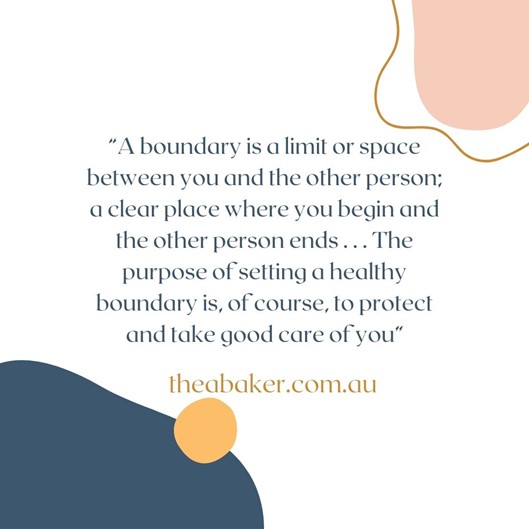Creating healthy boundaries
Creating healthy boundaries
Where last week we were looking at why we need to have healthy boundaries – both within ourselves and with those around us – this week I thought we’d put together some practical suggestions and strategies around how we might create, communicate and enforce boundaries in our lives.
First, know yourself:
To be able to put in place boundaries in life, we firstly need to do a bit of introspection and self-awareness work. If we don’t know what matters to us, we won’t know where those murky lines are that feel uncomfortable when crossed. One place to start is understanding your personal values. I’ve done a blog on this before so if you haven’t read that one CLICK HERE to do a bit of values clarification first.
Another way to understand yourself better is to ask yourself the following three questions:
- People may not ____________
- I have the right to ask for ____________
- To protect my time and energy it’s ok to ___________
Answer each of the three questions with at least 10 different examples and pretty soon you’ll start to see some areas of your life that need boundaries.
There’s also the very reliable reflective practice that encourages you to pay close attention to feelings of guilt, shame or resentment because these unpleasant feelings usually arise when core beliefs are being trampled on, we are over-committing ourselves, over-functioning or not speaking up when we really need to. If you feel you are saying “yes” when you really want to shout “NO” then it’s pretty clear indication that some boundary-work is needed! Speaking of which, here’s a great podcast from my great friend and colleague Jenny Burrell that looks at this exact issue, CLICK HERE to listen to it.
Putting boundaries in place:
Once we know where the gaps or needs are, then it’s time to figure out how to go about putting our boundaries down. I quite like this diagram from positive.psychology.com as a guide to what this might look like:
Essentially, setting boundaries requires having straightforward conversations with other people – and sometimes ourselves too! It’s important that we have those conversations clearly and simply without too much waffle or justifications. The whole reason we do the self-awareness work earlier in the process is to clearly identify our own person values and beliefs – they’re unique to each of us and do not need to be justified to anyone.
It’s uncomfortable to start with, saying “no” and being assertive. However, the clearer we are at the outset and the more transparent we are about what the consequences for when boundaries are over-stepped then the easier things get over time. Remember, when you back your boundary, you actually allow the other person to take responsibility for their own stuff – that was never yours to manage anyway!
Helpful alternatives to the straightforward “no”:
- Thank you, but I’ll pass this time round
- I’m not taking on new projects at the moment
- It doesn’t sound like quite the right fit for me
- I’ll have to sleep on that because I make it a personal policy to not make decisions straight away
- I appreciate your time but it’s not for me
- That really doesn’t work for me, my work and family schedule
If you’d like help with navigating your boundaries better, please reach out to us at Thea Baker Wellbeing: hello@theabaker.com.au / 03 9077 8194.


